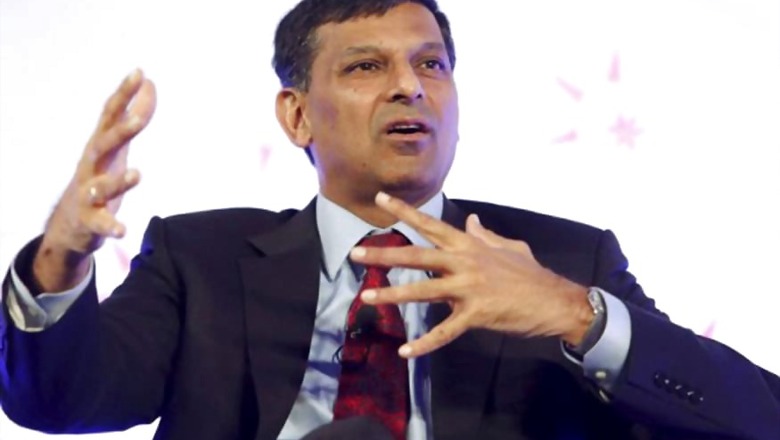
views
New Delhi: Amid the ongoing public spat between the Centre and the Reserve Bank of India, Raghuram Rajan on Tuesday said the RBI is like a seat belt, without it you can get into an accident.
Speaking exclusively to CNBC-TV18, Rajan, a former governor of RBI, reinstated the importance of the apex bank and said it should be protected as a national institution and the unhealthy disagreements between the Union finance ministry and the RBI should not escalate further.
"Once you have appointed a governor or deputy governor, you should listen to them," Rajan said, adding that he commends Viral Acharya for warning in support of RBI's autonomy.
Rajan said the ongoing rift between the finance ministry and the RBI can be resolved if both sides respect each other's intent.
The central bank has the liberty to say no if the government pushes it to be lenient, Rajan said, "Government should make its case to the bank and let the RBI decide."
On the role of the RBI board, he said its role historically has not been to take operational decisions but to focus on broader strategy as well as ensure good governance.
"So, they are there to ensure that the government's money is well spent in the RBI, for example, the RBI doesn't pay itself inordinate salaries and so on but also to serve as a sounding board which is why we have people from different walks of society, very eminent people," he said.
"So, my sense is the objective of the board is to protect the institution, not to serve others' interest; it is to protect the health of the institution but also to provide wide, sensible advice. The aim of the board is to be Rahul Dravid - sensible, thoughtful and not, with due respect, Navjot Sidhu," he said.
The turf war between the RBI and the Centre on the subject of the central bank’s autonomy has been out in the open since last week.
The fresh round of exchanges began with a speech by one of the four deputy governors in the RBI, Viral Acharya. He made a strong pitch for the central bank’s independence in its core functions and gave nothing short of a lecture on what happens to the economy if the RBI’s autonomy is compromised.
"The risks of undermining the central bank's independence are potentially catastrophic," Acharya had said.
"Governments that do not respect central bank independence will sooner or later incur the wrath of financial markets, ignite economic fire, and come to rue the day they undermined an important regulatory institution," he added.
The top bureaucrats and political leadership in Delhi’s power corridors duly responded to the central bank’s distress call. According to a Reuters report, the government is ‘very upset’ with Acharya’s public remarks.
Finance minister Arun Jaitley made a tacit counter to Acharya, without taking names, saying regulators should revisit their traditional approach and consult with a wider range of stakeholders. “I think, for any regulatory mechanism, stakeholder consultation has to be of a very high quality, which will probably lead to a revisiting of traditional thoughts and opinions," Jaitley said.
Rajan also said India is in a much better situation in terms of inflation and the government and the RBI should be duly credited for keeping the inflation low.
The country is growing at a faster pace than most other countries, Rajan said, raising concerns on the current account deficit (CAD) blowing up.
The former chief economist at the International Monetary Fund said that across the world, the monetary policy is expected to tighten in the future.
On the US Federal Reserves rate hike, Rajan said the US has the benefit of a substantial fiscal stimulus, adding that the American job data will determine if the Fed will continue to hike its rates.
The former RBI governor expects the US Fed to hike its rates only once this year and thrice in the next year. However, the strong US growth may not last as the Fed continues to tighten its rates.
The EU central bank is also going to stop its quantitative easing by the end of this year, he added.




















Comments
0 comment